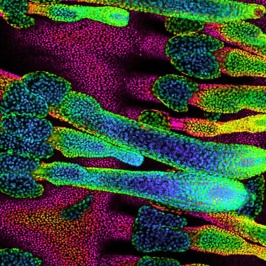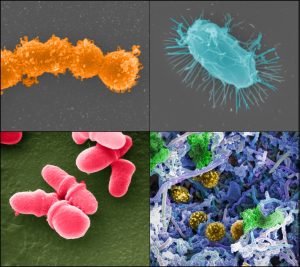September 2025
Full time
Three or four years
Available
Suzhou
Download file
School of Science
XJTLU undergraduate students earn two degrees: an XJTLU degree recognised by the Chinese Ministry of Education and a globally respected University of Liverpool degree.

Knowledge and skills
By the time you graduate from the BSc Bioinformatics programme, you will have:
- an understanding of key cell and life processes, as well as major issues and challenges in biomedical sciences
- the ability to implement cutting-edge computational techniques with modern computing devices
- an solid foundation in the the emerging field of bioinformatics, which has strong market needs and excellent employment prospects in China and international
- the knowledge to apply various experimental and computational approaches to tackle real-world biomedical problems.
Bioinformatics is an interdisciplinary field combining biology, statistics, computer science, and AI. It uses computational power to decipher large-scale biological datasets, driving exciting advancements in today's biomedical science.

Zhen Wei
Programme Director
Modules
*Programme modules listed are illustrative only and subject to change. XJTLU students are advised to log in to the e-Bridge Portal to view the effectuated module structure.
Xi’an Jiaotong-Liverpool University offers a wide range of courses in the first year, including English for academic purposes (EAP), mathematics and physics, and humanities and social sciences. Click to learn more.
Core Modules
Optional Modules
Bioinformatics is an interdisciplinary programme combining Biology, Computer Science and Mathematics. I really like the small class sizes, and that professors and teaching assistants provide personalised guidance to develop the ability and personalities of students.

Yijia Jiang
Student, BSc Bioinformatics, China
Careers
Graduates from this programme are well prepared for positions such as bioinformatician, biostatistician, computational biologist, genetic counsellor and clinical bioinformatician, as well as other types of biological and biomedical scientist roles. Graduates can also go on to further study in related fields, such as clinical informatics, computational biology, biostatistics, molecular sciences and drug design.

















Overview
Bioinformatics combines computer science with molecular biology to give you fundamental insights into life processes. The need for bioinformatics has been triggered by huge scientific advances in collecting biological data.
As the key to extracting meaningful information from this data, bioinformatics is essential for an in-depth understanding of human diseases as well as for the identification of new molecular targets and therapeutic molecules for drug discovery.
You will graduate with the knowledge and skills to tackle real-world life science problems from an informatics and computational perspective.
The programme offers three study pathways, allowing you to tailor programme to your strengths and interests. After Year Two, you have two options:
Why should I study Bioinformatics at XJTLU?